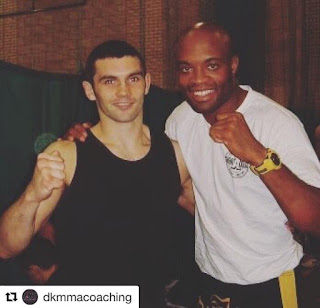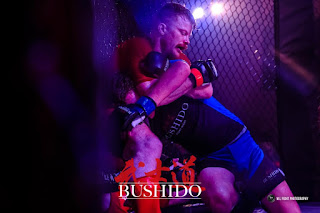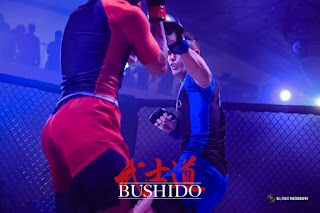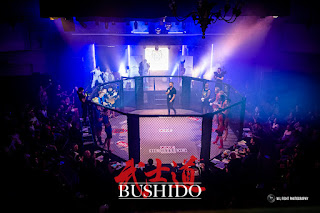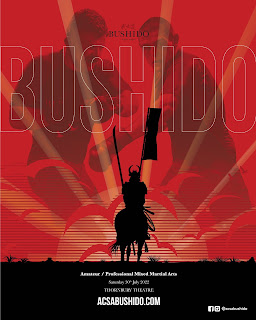This article was written with the help of Wayne Goldsmith who I have been working with for the past few months. Wayne is a sports coaching expert who has worked extensively with sports teams and organisations all over the world including Swimming Australia, the US Olympic Committee and numerous Football and Rugby clubs.
Why you need to Train Year Round and Keep Getting Better
I believe staying fight ready year round while constantly improving and upgrading skills is the key to success for any aspiring fighter. The fighter must focus on improving and adding new skills between bouts simply because as he progresses through his career he will come up against better and better opponents.
A successful fighter with a winning record will inevitably face opponents who have a much higher level of striking. grappling and experience than his previous opponents. The level of technique and fitness which was enough to beat the local level fighters he previously faced will usually not be enough to beat an international level opponent.
Stages of Fight Readiness
The first step in staying ‘Fight Ready’ is understanding the various stages of Preparation and Fight readiness. Wayne Goldsmith breaks the various stages down as follows:
· BASELINE - (LEARNING AND EARNING PHASE) In the "BASELINE" phase of training, athletes are focused on general fitness, flexibility, power, balance, co-ordination and the fundamental movements and skills of the sport. This phase of training includes exposure to a broad range of tactics, skills and techniques. Training sessions during the "baseline" phase may be relatively long in duration as athletes focus on learning new skills, building strength and endurance and laying down the foundations - the platform for long term success.
· COMPETITIVE - (MASTERY AND SPECIFICITY PHASE) In the competitive phase athletes become focused on narrowing their skills and honing their "weapons" with an aim to developing a specific set of skills that are conducive of them fighting to the best of their ability. For example, in this phase of training, athletes may spend more time on kicking and grappling if these are considered to be the "weapons" that will help them win their upcoming fight. In this phase, the mental aspects of fighting become more important and athletes should be working with their coaches and training partners to identify areas of mental skill, mental toughness, concentration and focus that they can work on during physical training sessions.
· WINNING - (PEAK PERFORMANCE PHASE) in the winning phase the emphasis becomes speed, power and explosiveness and on being able to execute excellence in technique and skill at fight intensity. Training may be a little shorter than in the Baseline and Competitive Phases but the speed and intensity of activity will be much higher as the athletes prepares specifically to win. There is a clear focus on mental skills in this phase of training. MMA athletes and their coaches should create training situations which "expose" mental weaknesses and provide opportunities to build and strengthen mental skills under simulated fight conditions.
Post Fight Period
An important consideration here is the post-fight recovery period. Experience suggests that the longer the time the athlete takes away from "baseline" training following a fight the more challenging and difficult it is to get back to Competitive and Winning shape.
Where possible, MMA athletes are encouraged to do something the day immediately following their fight, e.g. walking, easy bike riding, swimming, slow-easy yoga type stretching so that the recovery process can be accelerated and the transition back into "baseline" fitness can be smooth and relatively short.
Recovery Block
Wayne Goldsmith recommends what he calls a ‘Recovery block’ of slightly easier training working on a new skill or weak area immediately following a fight. I think this is a great idea because it gets the athlete back in the habit of consistent training rather than getting lazy or falling into bad habits.
This post fight period is perfect for working on a new skill (perhaps improving your boxing offense if you are mainly a grappler). This is the time to do it because there is no pressure from an upcoming fight. Also, you may have learned valuable lessons from your last fight regardless of whether you won or lost. This is the time to learn from the mistakes while it is still fresh in your memory.
Stay in Competitive Shape so you can easily get back to Winning Shape
The aim of this system of fight readiness is to keep yourself in the ‘Competitive’ stage so that when a fight comes along you're only a few weeks off ‘Winning’ shape. As previously stated, up and coming fighters need to be ready to take fights and make the most of opportunities when they come along. There is only a small window of opportunity in the sport of MMA and there are a lot of talented athletes all fighting for the top spots.
Continual Improvement Instead of 'Fight Camps'
Obviously this continual training protocol is the opposite to doing ‘Fight Camps’. I always discourage fighters from doing fight training camps. Training hard for six weeks before a fight may help you to perform better on fight night but will not lead to consistent improvement. To be a great fighter you need to train consistently week after week for many years.
Six weeks can be enough to develop general fitness and some strength and power but real fighting techniques are complicated motor skills requiring hours and hours of practice and repetition over many years, you need to be practicing them all the time to develop flawless technique and acquire the perfect timing so that you can use them under pressure against a resisting opponent.
Stages in Skill Development
As skills develop, your capacity to perform the skill progressively changes. At first, you learn how to do the skill slowly as your brain and body try to master the fundamental movements of the new skill. Then, you repeat the skill with precision and through the repetition your brain and body learn how to perform the skill to a high level of accuracy.
These first two stages of skills learning can take as little as a few sessions or a few weeks. However, it is important that you learn to execute the skill at high speed, under fatigue and under physical and emotional pressure, i.e. the conditions you will experience in a fight.
Simply practicing a skill and learning how to perform the movements of the skill is not enough for a MMA athlete! The critical issue is "can you perform the skill accurately at high speed, when you're fatigued and when you're under pressure?"
Obviously this is something which cannot be achieved in just a few weeks leading up to a fight and requires long term commitment.
It is worth remembering that usually you won’t see immediate results from your training. You will only feel the benefit from it in months to come. When a fighter performs impressively in a match it usually has less to do with their training in the last two months and more likely a result of their training over the previous five to ten years
